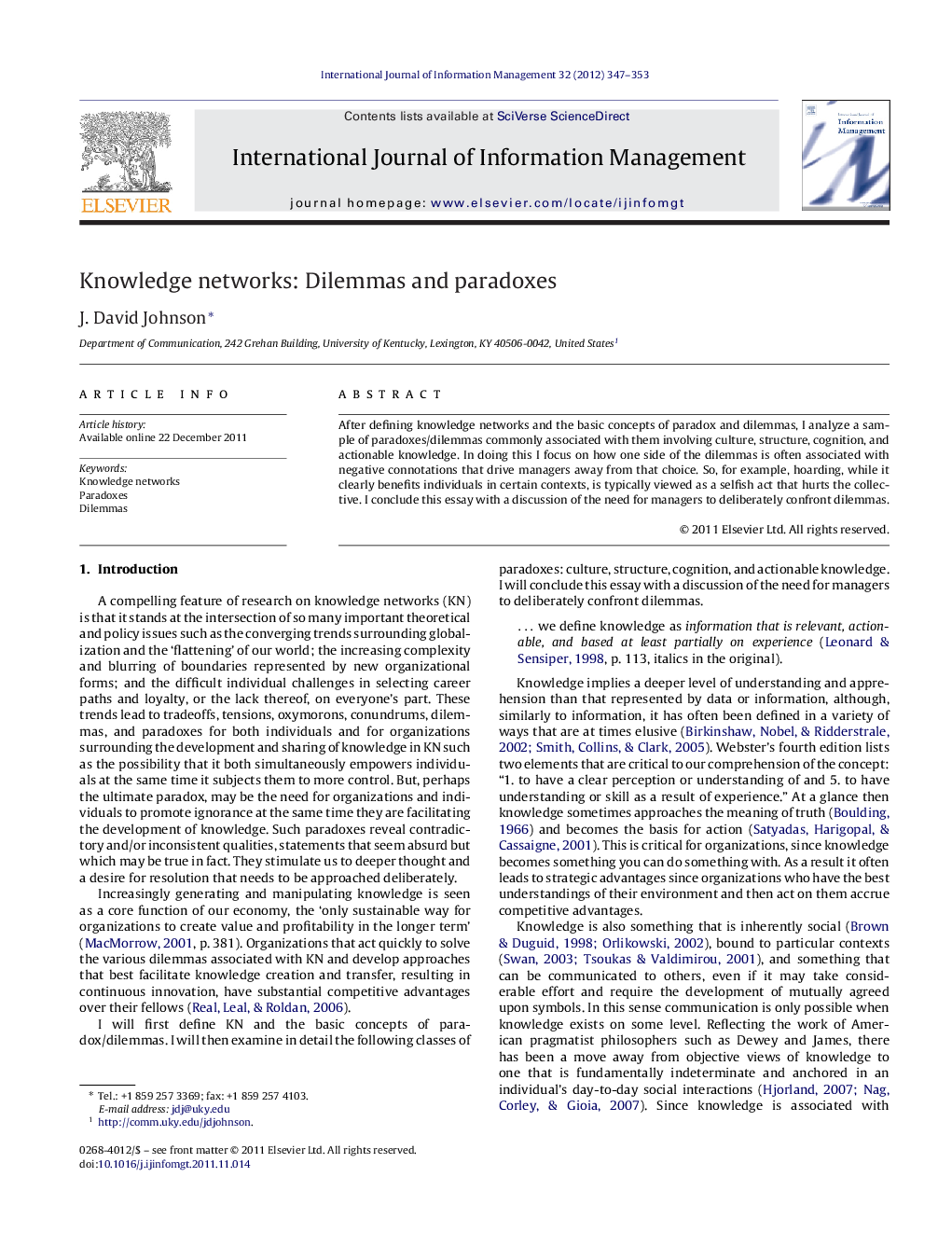| Article ID | Journal | Published Year | Pages | File Type |
|---|---|---|---|---|
| 1025795 | International Journal of Information Management | 2012 | 7 Pages |
After defining knowledge networks and the basic concepts of paradox and dilemmas, I analyze a sample of paradoxes/dilemmas commonly associated with them involving culture, structure, cognition, and actionable knowledge. In doing this I focus on how one side of the dilemmas is often associated with negative connotations that drive managers away from that choice. So, for example, hoarding, while it clearly benefits individuals in certain contexts, is typically viewed as a selfish act that hurts the collective. I conclude this essay with a discussion of the need for managers to deliberately confront dilemmas.
► This essay defines knowledge networks and the basic concepts of paradox and dilemmas. ► Dilemmas and paradoxes are commonly associated with organizational culture, structure, cognition, and actionable knowledge. ► Often one side of the dilemmas is often associated with negative connotations that drive managers away from that choice. ► As a result, managers need to deliberately confront dilemmas.
